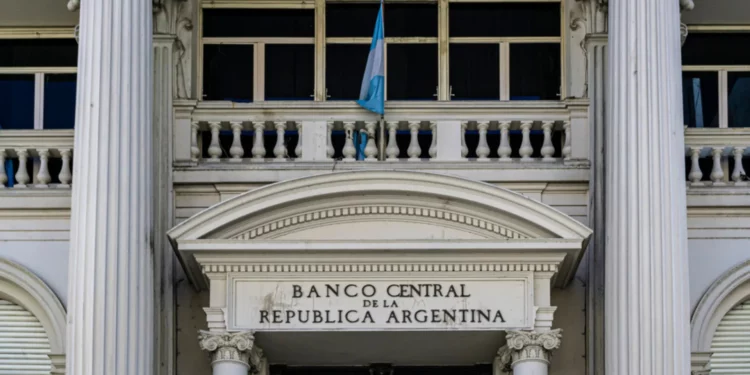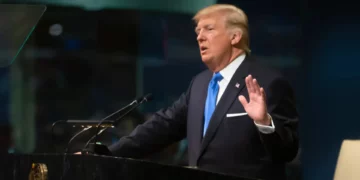Traditionally, in exchange for monetary and fiscal targets, disbursements fall between 20-30%, Argentina has requested the IMF for more because the government has already met the requirements.
After the International Monetary Fund (IMF) confirmed on Friday that the program it had been discussing with Argentina would be for $20 billion, the country has requested that the first disbursement from this amount be more than 40%. Economy Minister Luis Caputo explained that in addition to eliminating the fiscal deficit, Argentina had also reduced public spending.
This was prompted by the government’s desire to increase central bank reserves and ease forex curbs which are a roadblock to business and investment. While traditionally, in exchange for monetary and fiscal targets, disbursements fall between 20-30%, Buenos Aires has requested more because the government has already met the requirements.
This program has been characterized as an Extended Fund Facility (EFF) and will be the 23rd IMF program for the South American country since it joined the organisation in 1956. An IMF spokesperson has confirmed that the agreed package and its phasing will be decided by the Executive Board.
The previous program the IMF and Argentine government had signed was for $44 billion in 2018 and it was criticized for being too lenient towards the country. That program was also front-loaded, and the organisation is cautious so as to not repeat the same mistakes. The IMF explained that the EFF is a program designed to help countries plagued with serious payment imbalances because of slow growth or structural challenges. This program can also help correct these structural impediments through favourable policies.
This is a four-year program which the government aims to repay over a period of ten years. The program is subject to periodic reviews and the tranches will only be disbursed once the board is convinced that the set goals are being met. The Argentine government had been eyeing such a program for months now, as the economy has been grappling with triple-digit inflation, rising debts and diminishing reserves. While both, the IMF and Argentina had been in talks for months together, it was only last week that the $20 billion figure was publicly announced.
Through this EFF, the central bank reserves will shore up, reduce debt repayment risks in the forthcoming years and also strengthen the government of libertarian leader Javier Milei. The greenlighting of this program has certainly calmed the anxiety of the market, which had as a result turned quite volatile this past month. Along with the uncertainty of this IMF deal, there was also speculation that the peso currency would be quickly devalued.
However, these investor fears were eased once Milei put an end to all the postulation when he announced last week that there was ‘no room’ for the devaluation of the local currency. The peso has so far been held in check due to strong capital controls, despite the worsening economic situation in the country. Milei had explained that once the IMF deal came through, there would be a ‘mountain of dollars for a few pesos, and no fiscal deficit.’ Therefore, the President believed there would be no cause to raise the exchange rate. Removing the capital controls will also depend on how quickly the funds will be released.
The weakening economy had pushed Buenos Aires to take some desperate measures, with the country’s central bank forced to sell a large amount of dollars in a bid to support the peso in the past month. Since assuming office in 2023, Milei has slashed the currency’s value by more than half and implemented stringent austerity measures to counter years of overspending.
Argentina is the IMF’s largest borrower and is still in the process of repaying the $44 billion deal from 2022, which replaced the failed 2018 program. Despite these dire conditions, the government is maintaining an air of optimism, explaining that this new deal will bolster central bank reserves and help relax capital controls.

















